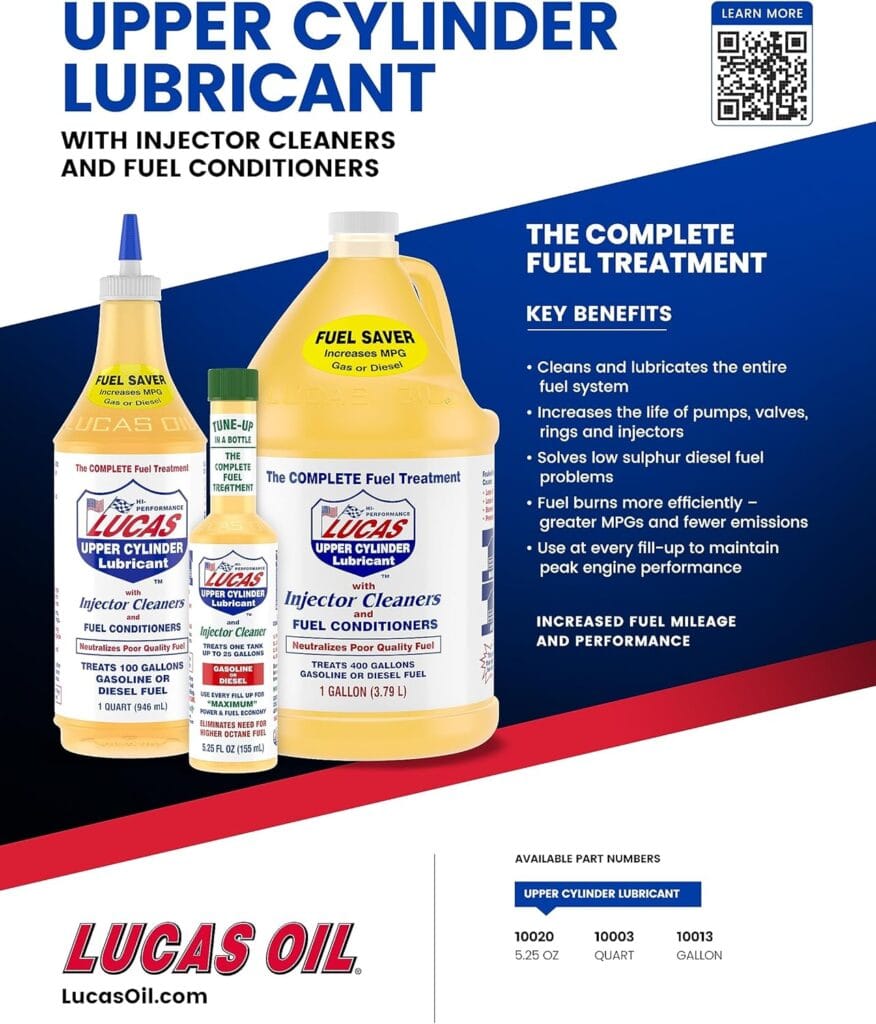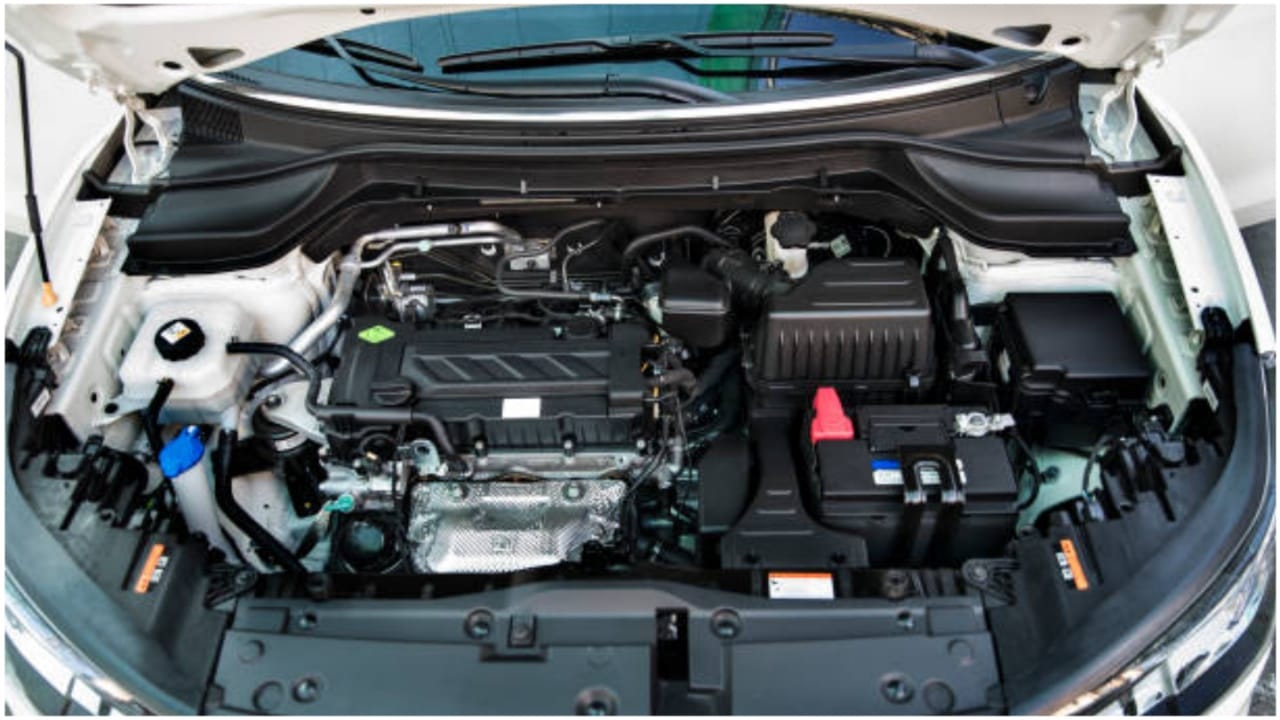Finding the best oil additive to clean your engine can be confusing. The "marking method" is simply understanding the API and SAE ratings on the bottle. API ratings like "SN" or "SP" indicate the oil's quality, with higher letters meaning better performance.
SAE numbers (e.g., 5W-30) describe viscosity. A unique tip: some professionals use oil analysis to mark engine wear by checking for metallic particle buildup.

Lucas Oil 10020-PK24 Fuel Treatment - 5.25 Ounce (Pack of 24)
Oil Additives Types
Oil additives include detergents (clean engine deposits), dispersants (prevent sludge), anti-wear agents (protect metal surfaces), viscosity improvers (enhance flow), and corrosion inhibitors.
Unique types like friction modifiers boost fuel efficiency, while pour-point depressants help cold starts. Each additive targets specific engine needs, improving performance, longevity, and oil stability.
Choose Which One Should
The right oil additive depends on what your engine needs. If your engine has sludge buildup or dirty oil passages, a cleaning additive is the way to go. It will break down deposits and clear out gunk, helping your engine run smoother.
If your car is older or has high mileage, an anti-wear additive can help protect worn parts and extend engine life. It forms a protective layer on metal surfaces, reducing friction and preventing further damage.
For better fuel efficiency and smoother performance, friction modifiers are a great choice. They reduce metal-on-metal contact, making sure your engine runs with less resistance.
If you live in an area with extreme temperatures, a viscosity stabilizer helps your oil stay at the right thickness, so it flows properly whether it’s hot or cold.
And if you just want to keep things clean and prevent buildup over time, a detergent-based additive is a good option for regular maintenance.
Your choice should depend on your car’s condition. A strong cleaner is best for a neglected engine, while a protective additive works better for long-term care.
Why Additives Matter
Additives are vital for the engine. They clean deposits, reduce friction, prevent rust, and improve oil flow. Some enhance fuel efficiency; others extend oil life.
Without additives, engines wear faster and perform poorly. Each additive targets a specific issue, making them essential for long-term reliability, protection, and smoother operation.
High-Mileage Solutions
Oil additives repair worn seals, reduce leaks, and reduce engine noise. They can restore compression and improve fuel economy. They also include detergents to clean away sludge buildup.
These solutions aren't just maintenance - they can be the perfect solution for older engines, increasing performance and reliability beyond expectations.
Synthetic Oils and Additives
Synthetic oil is already amazing. It has built-in additives that help keep the engine clean, reduce friction, and prevent wear. That’s why it lasts longer and doesn’t break down as fast as regular oil.
If there’s sludge buildup, a cleaning additive can break it down faster. If your car has high mileage, an anti-wear additive can protect old parts. And if you drive in crazy hot or freezing cold weather, a viscosity stabilizer can keep the oil flowing just right.
Now, here’s the thing—you don’t want to go overboard. Adding too much to synthetic oil can mess with its formula and do more harm than good. So, if you’re already using a good synthetic oil, just add what your engine needs—nothing more, nothing less.
Diesel Engines Need Special Care
Specific additives are a must for diesel engines. Due to their combustion process, diesel engines have unique needs. Products like Hot Shot's Secret Stiction Eliminator clean injectors and reduce soot buildup, keeping diesel engines running strong.
How to Use Them
To use oil additives, begin with a warm engine and fresh oil. Shake the bottle well, pour the full dose into the oil filler, and let the engine idle for several minutes. This ensures full circulation and optimal protection. Always follow product instructions.
Benefits You'll Notice
Once you use a quality oil additive, expect smoother performance. The engine will feel more responsive, and you might also notice improved fuel economy. Cleaning the engine reduces internal friction, letting it run more efficiently.
Keep Up with Maintenance
Oil additives are helpful, but they're not a magic fix. Regular oil changes and proper maintenance are still essential. Use additives as part of a larger care plan for your engine.
A Word of Caution
Not all engines need oil additives. Adding one might not make a noticeable difference if your motor runs perfectly, but they're an excellent option for dealing with sludge or performance issues.
Conclusion
Engines don’t stay clean forever. Over time, gunk builds up, and if you ignore it, things can get pretty bad. I’ve been there—rough idling, sluggish performance, and oil that looks more like tar than liquid. But the right oil additive can fix all that.
If your engine is struggling, a strong cleaner will break down sludge quickly. If it’s running fine but you want to keep it that way, a protective additive will help. If you’re using synthetic oil, just be careful—not every additive is compatible with it. Only add what your engine needs.
Ultimately, keeping an engine clean is much easier than fixing a dirty one. So, pick the right additive, pour it in, and let your engine breathe easy.
Frequently FAQ
STP Ultra 5-In-1 is a top internal engine cleaner. It deep-cleans fuel systems, reduces friction, and prevents ethanol deposits. Hot Shot’s Gasoline Extreme also works well. It boosts fuel economy and clears injectors. Both restore smooth engine performance.
The best engine oil cleaner additive dissolves sludge, carbon deposits, and varnish inside the engine. It’s added before an oil change, then circulated by idling the engine. This process restores oil flow, improves compression, and prepares the engine for fresh oil. Always follow dosage and timing instructions carefully.
You can add a pre-oil-change engine flush additive. It dissolves sludge, carbon, and varnish inside the engine. Add it to warm oil, idle briefly, then drain with the old oil.

